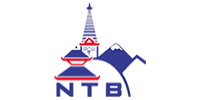-
Places to go
-
Things to do
-
Adventure
Nature
Culture
Wellness
Others
-
-
Festivals & Events
-
Festivals
Event Calendar
-
-
Plan Your Trip
-
Trip Ideas
Travel Details
Book Your Trip
-
- Travel Updates
Gosainkunda, Rasuwa
Gosainkunda, Rasuwa
Gosainkunda, Rasuwa
Gosainkunda, Rasuwa
Gosainkunda Lake, situated northwest of Kathmandu at an altitude of 4,380 m in Rasuwa district, is a major pilgrimage site for Hindus. This lake on the Langtang trekking trail is the source of the River Trishuli. Devotees throng this lake on the auspicious day of Janai Purnima in July to take a holy dip in the icy cold waters and wash away their sins.
Hindu mythology relates the saga of ‘Samudra Manthan’, or the churning of the celestial ocean by the gods and demons, in the quest for amrit, or elixir that would make them immortal, and ratna, i.e., the most precious of jewels and treasures. Unfortunately, the first thing that came out of the churning of the ocean was not ratna but the mother of all poisons, Halahal kalkoot, which soon started diffusing and dispersing into the atmosphere, destroying nature, and killing all fauna and flora. Alarmed, the gods and demons prayed to Lord Shiva to save them from annihilation. The kind Lord took the poison and consumed it but did not swallow it and held it in his throat (Adam’s apple). The poison, however, caused unbearable pain, and Lord Shiva dashed to the cool Himalayan mountains for solace. On reaching there, he plunged his trident into the mountain rocks from where gushed three springs of icy cold water which accumulated downstream into a lake. The Lord then dipped into the cold waters of the lake and soothed himself. As the burning poison caused his throat to turn blue in colour, Lord Shiva since then came to be known as Nilkantha or ‘the one with the blue throat’.
The gods and demons, of course, thereafter proceeded with the churning of the ocean and drew vast treasures including the precious jewel Kaustubh Mani, the celestial elephant Airawat, the divine conch Panchajanya, the all wish-fulfilling celestial tree Kalpa brikshya, the divine cow Kam Dhenu and the Goddess of Wealth Laxmi, which they apportioned among themselves, including the amrit that emerged last. There are nine other kundas (lakes) in the vicinity, prominent among them being the Saraswati, Bhairab, Surya and Ganesh Kunda.
Access: Gosainkunda can be reached by taking a bus from Kathmandu to Dhunche, the headquarters of Rasuwa district (almost a day’s drive due to poor road conditions), and then starting the uphill journey on foot which takes a day or two to reach the lake, depending upon one’s ability to walk under treacherous high altitude mountainous terrain. The pilgrimage site can also be reached by taking an alternate trekking route via Sundarijal to the north of Kathmandu Valley.
Nepal Tourism Board is a national tourism organization of Nepal established in 1998 by an Act of Parliament in the form of partnership between the Government of Nepal and private sector tourism industry to develop and market Nepal as an attractive tourist destination. The Board provides platform for vision-drawn leadership for Nepal’s tourism sector by integrating Government commitment with the dynamism of private sector.



